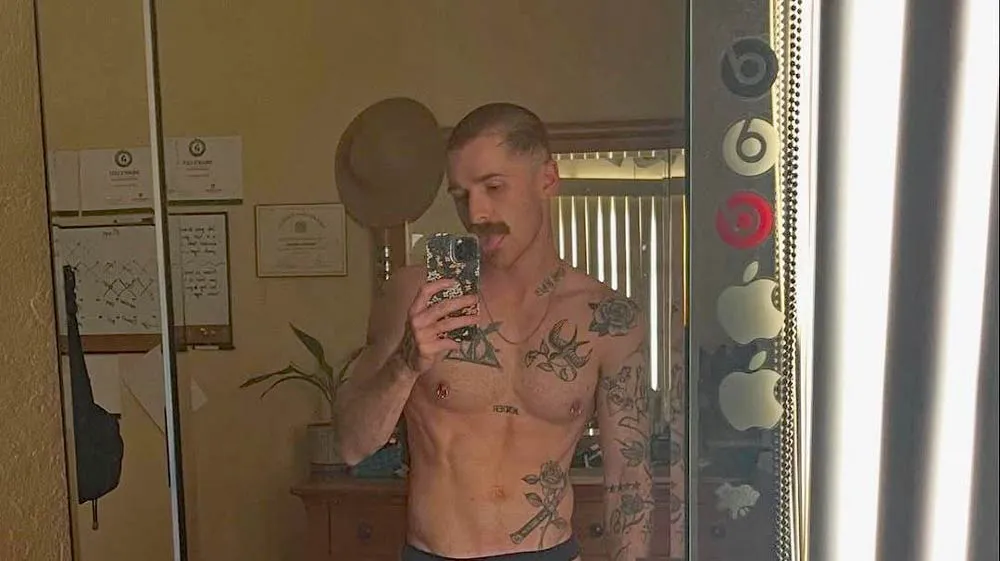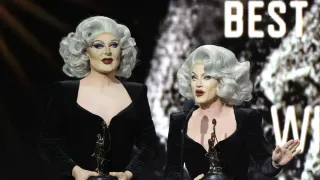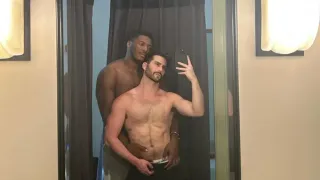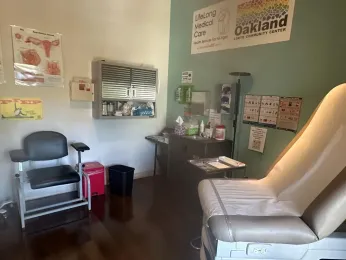
Jun 25
SF, Oakland LGBTQ centers reckon with budget cuts
John Ferrannini READ TIME: 5 MIN.
When queer people first come out or have fallen on hard times, LGBTQ community centers large and small may be some of the first places they look to for support and community.
T. McCarthy, who is queer, struggled to find work in the city and felt stereotyped as a neurodivergent person in the workplace. Starting in 2007, she went to the San Francisco LGBT Community Center for help and utilized its employment services. Approximately 50,000 people visit the center’s building on Market Street annually, some seeking services, others to get information or attend events there.
"Affirming places like the San Francisco LGBT Center are essential for community members like me who need a safety net,” McCarthy stated. “For months, I struggled to find work in the city. Realizing I needed a safe community space with resources, I connected with the center’s employment services team, and the pieces began to fall into place.
“Through the years, the center’s ability-informed employment specialists remained collaborative and compassionate, guiding me as I navigated systemic workplace issues. The center consistently showed up for me through the years, which gave me the courage to show up for myself," McCarthy added.
Olivia Vail, a trans woman, started receiving services last year. She’d been struggling with homelessness, discrimination, addiction and violence.
"A turbulent transition landed me in a hard place and I needed a leg up, so I reached out to the SF LGBT center to lay out some goals,” Vail stated. “I felt super supported by the guidance of my counselor and I was able to start a career in public health.”
As nonprofit organizations, many centers rely on private donations, or government contracts provided in exchange for social services, to keep the doors open. Both of these have been threatened in recent months with an emboldened second Trump administration slashing federal programs, attacking diversity, equity, and inclusion efforts, and private donors tightening their belts amid fears about the economy.
“Definitely, things are changing,” Rebecca Rolfe, a lesbian who is the outgoing executive director of the San Francisco LGBT center at 1800 Market Street. “We’re seeing a couple of things – we’ve seen a couple institutional donors take a pause or step back, and it’s not clear what’s going to happen with those. We’ve seen other institutional donors say, ‘Nope, we’re here for you.’ It also seems like a lot of institutional donors are trying to figure out how to navigate their way through a rapidly changing external landscape.”
For this Pride issue, the Bay Area Reporter checked in with several LGBTQ centers across California to ask what particular challenges they are reckoning with amid that landscape. The B.A.R. is starting with the two closest – in San Francisco and Oakland.
LGBTQ centers are not franchises, in that they are wholly independent organizations and don’t provide uniform services. (The other articles will be published in July.)
Rolfe has spent 22 years with the San Francisco center, which opened up in 2002. She announced in April that she will be stepping down in December. The center has an operating budget of $5.3 million and serves 6,600 people a year.
“Most of our direct services are targeted at addressing the specific ways homophobia and transphobia impact people, with a particular focus on how intersectionality is included in that,” Rolfe said.
To that end, the center has pivoted to economic programs such as helping people get and keep jobs, start or grow small businesses, and providing financial literacy services. The other main service area is youth; the center has a program for transitional-aged youth (16-24) and is an access point to city housing programs.
The center also utilizes its building, between the Castro and downtown in the mid-Market neighborhood, for an average of 100-150 events per month, including both events put on by the center itself and by others.
Finances
Rolfe said that the center’s finances are “a complex situation with a lot of nuance.” Fortunately for the center, “the only federal money we get is passed through local funders through the city and county [of San Francisco] – nothing has been cut off, but it’s something we’ve been preparing for,” she added.
That includes about $100,000 that goes toward the center’s small business development program and its first-time home buyer program, Rolfe said.
On the other hand, the center did lose some money from the city. Last year, along with Larkin Street Youth Services and the LYRIC Center for LGBTQQ Youth, the center was slated for cuts, but after $11 million from the Department of Children, Youth and Their Families was restored by the office of then-mayor London Breed before the budget was signed, only LYRIC sustained cuts.
At the end of May, when Mayor Daniel Lurie’s proposed balanced budget was announced, a mayoral spokesperson wasn’t able to identify cuts to LYRIC and Larkin Street, but did state, “The SF LGBT Center does have impacts. There is a reduction to their workforce development work and there was an elimination of the strategy of community building at [Mayor’s Office of Housing and Community Development] from which LGBT center gets money, as was made public in March when they sent out preliminary RFP [request for proposal] results.”
Board of Supervisors President Rafael Mandelman, a gay man who represents District 8, including the Castro neighborhood, on the board, had previously told the B.A.R. that the San Francisco LGBT Community Center would see at least a few hundred thousand dollars in cuts.
Asked about the cuts Rolfe stated that, "We have heard from about a third of our contracts with preliminary information that is subject to change. With the preliminary information available to us, we are looking at cuts related to our information and referral/community building grant as well as our financial coaching grant. For most of our contracts, we do not yet have detailed information, so do not yet have an assessment of the overall impact on our budget or our programs."
Throughout June, as the supervisors have held budget hearings on Lurie’s proposed cuts and make their own fiscal decisions, center officials have been waiting to see how their own finances will be impacted. As of last week, Rolfe told the B.A.R. it was likely two additional grants it received from the city would be reduced.
“We are always in a constant state of change and adaptation,” Rolfe said. “What I know is the center, and every organization we partner with, is really here for the community and really putting the needs of the community front and center.”
But especially now, noted Rolfe, that assurance comes with the need for the community to get involved in whatever ways they can.
“This is really a tough time – I know a lot of people are really feeling it, really feeling anxious and a lot of stress and retraumatization,” Rolfe said. “I think this is a really important time for the community to step up – we can’t look to a few individuals, whether those are donors or leaders, to ensure the success of organizations important to us as a community. So, I really encourage people to get involved in some kind of way: make a donation, even if it’s not a large donation, or volunteer.”
For more information, visit sfcenter.org .
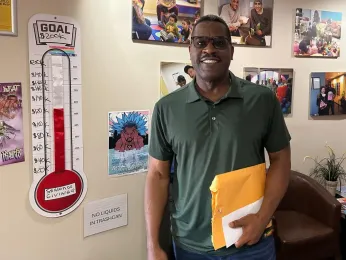
Oakland in ‘dire’ situation
Across the Bay, at a June 5 hearing of the Alameda County Board of Supervisors addressing the impact of President Donald Trump’s executive orders, budget proposal (the One Big, Beautiful Bill), and the Department of Government Efficiency on local efforts to fight HIV, Joe Hawkins, co-founder and CEO of the Oakland LGBTQ Community Center, gave an impassioned presentation at the podium.
“The Trump administration recently cut a grant we had – we were already awarded for $622,000. Other cuts have followed, corporations have pulled back [donations],” Hawkins said. “One-third of our budget is gone. Our budget is only $3 million, and each attack from the Trump administration, whether it’s HIV – we were expecting at least $1.5 billion to be cut from HIV services at the federal level – who does that impact the most? LGBTQ people.”
Hawkins spoke with the B.A.R. in an interview last month in which he said that the grant money was going toward the Glenn Burke East Clinic & Trans Wellness Center at the City of Refuge building at 8400 Enterprise Way. It’s a satellite program of the center in East Oakland that opened June 7. A capital campaign had raised $1 million, which helped the center open the clinic, Hawkins said. (The center is named after Burke, the first professional baseball player to come out as gay after he retired in 1982 and who died in 1995 of AIDS-related complications.)
The $622,000 was from a federal grant from the Substance Abuse and Mental Health Services Administration, and it went through the Sierra Health Foundation.
But that doesn’t mean the center’s future is without uncertainty.
“We began laying people off in February, so we’ve laid off about 26% of our staffing since then, and we do expect to lay off others,” Hawkins said. “We don’t have the level of commitment to funding not just the East Oakland expansion, but the organization itself.”
The center had 32 staff members before the layoffs, Hawkins said. The eliminated positions included those of clinic receptionist, chief operating officer, youth services coordinator, executive assistant, case manager, community outreach worker, and two recovery services specialists, Hawkins told the B.A.R.
Oakland’s center, which is at 3207 Lakeshore Avenue, has been open for eight years, Hawkins said. It operates five sites: the administrative offices, the youth club, the Glenn Burke Clinic at Lakeshore, the social services department, and the new Glenn Burke site in East Oakland.
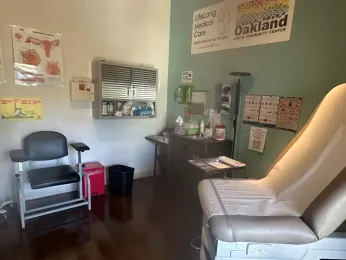
“We are spreading our staff very thin to provide coverage,” Hawkins said. “We provide comprehensive [social services] from youth to elders, gender diversity to immigrants. Oakland is clearly one of the most diverse cities, if not the most diverse city, in the Bay Area.”
Those services include sexual wellness, gender-affirming care, a food pantry, and social events for seniors and youth.
“Oakland was the only major city without an LGBTQ center,” he said of the Bay Area. “People believed we didn’t need one, that San Francisco or Berkeley was the place for us to go, or people didn’t feel Oakland was ready for a center.”
Hawkins had thoughts on the changes brought on by the Trump administration but said they’re nothing new.
“Someone said this is unprecedented to me, and I said, ‘These things aren’t unprecedented. This is not unprecedented.’ We are used to our government attacking LGBTQ people, attacking people of color, underresourcing our organizations. That has been the norm. It is abnormal to see us receive funding that would be adequate enough to service the needs of our community. So, this is just the more recent, the more blatant and direct attack on LGBTQ and people of color that we’ve seen in a long time.”
Hawkins told the supervisors, “The organizations you fund, they’re not familiar with how to serve LGBTQ people. What I’m asking for is equity in proportion to the disparities. We were constantly met with homophobia and transphobia from our families. I remember during the [COVID] pandemic, a couple of mothers brought their children to our doorstep and said, ‘You take ‘em’ – people willing to give up their children because they’re LGBTQ.”
Alameda County Supervisor Nikki Fortunato Bas, a straight ally who previously served on the Oakland City Council, called that June 5 hearing. She’s been a supporter of the center and of its push to establish the Lakeshore LGBTQ Cultural District that is anchored by the center.
“I appreciate the work you and everyone at the center does. They are a trusted provider in the community,” she said at the meeting.
Some money that comes through Alameda County is “on hold,” Hawkins said, that was from federal dollars distributed as block grants.
“Housing Opportunities for People with AIDS: that funding comes from the feds to serve low-income people living with HIV,” Hawkins said. “We have no idea what’s happening with those funds at this time. Prevention funding hangs in the balance right now. So typically, there’s a cycle of applying for these funds, but we are not sure what’s going to happen. We just don’t know. … We won’t really have a clearer picture till July 1.
“From a planning perspective, this is one of the first times in a long time we don’t really know what to do,” Hawkins added. “It’s so uncertain. We do know we can’t continue to provide services without funding and, usually, the first thing that gets hit is payroll and that’s what’s happening right now.”
As the B.A.R. reported after the interview with Hawkins, Trump’s budget proposal cuts $1.5 billion in HIV/AIDS funding, including the entirety of Housing Opportunities for People with AIDS.
Hawkins didn’t return a request for comment June 18 asking if there was any update. Earlier in the month, while discussing the private funding the center is receiving, he noted it has been seeing mainly smaller donations of late.
“The very large donations stopped as well as mid-level. We still continue to get some smaller donations, maybe $100 or so, but yeah, our major donors who helped us in the beginning, when we first started, those have completely gone away,” Hawkins said, “and our development team is actively recruiting major donors to support us because we are in a dire situation. We don’t have reserves. Our line of credit is no longer there.”
As dire as the situation is, Hawkins has seen the community rally before.
“This really is a community-first effort,” Hawkins said. “If we don’t help each other we will not be around to provide these services. It just won't happen. I do feel confident, though, because when we started the center people said, ‘How are you going to fund it?’ and we said, ‘Community,’ and they really helped us.”
Hawkins stated the center serves 4,000 people annually. Its most recent IRS-990 form shows an annual budget of $3.7 million.
For more information, visit oaklandlgbtqcenter.org.
